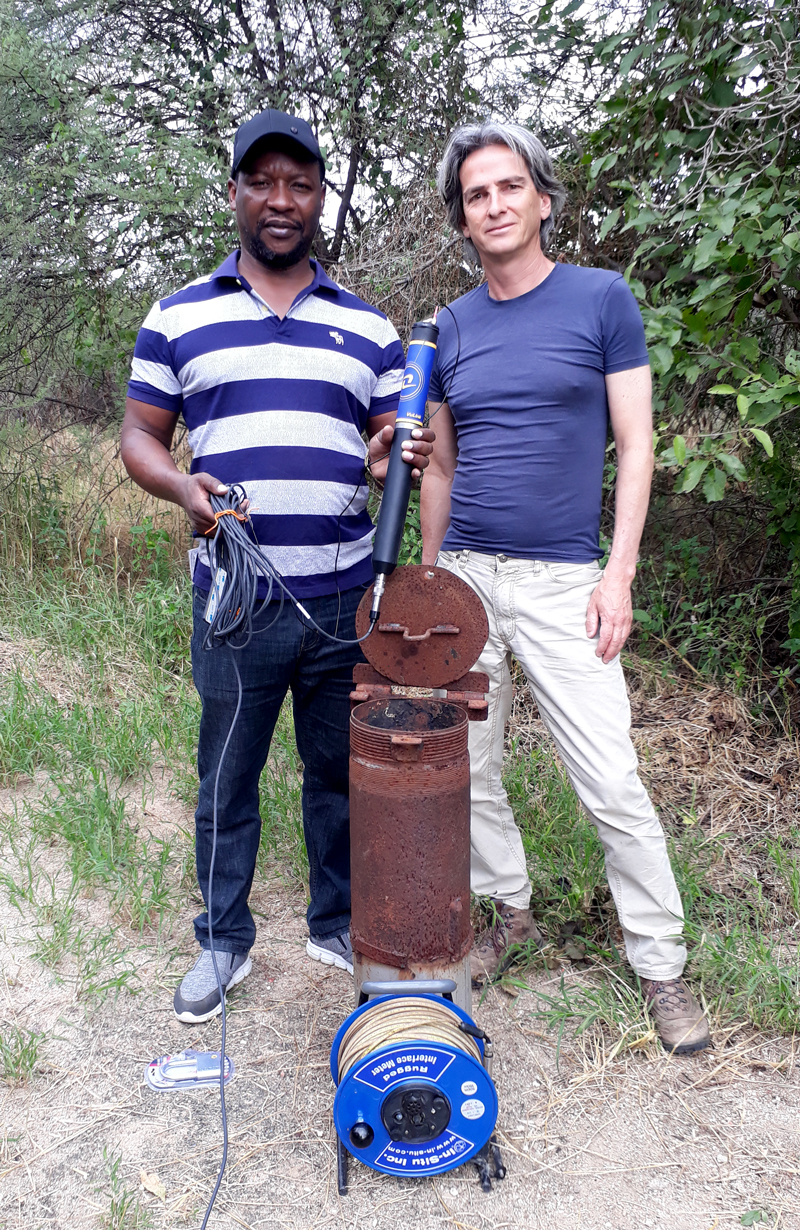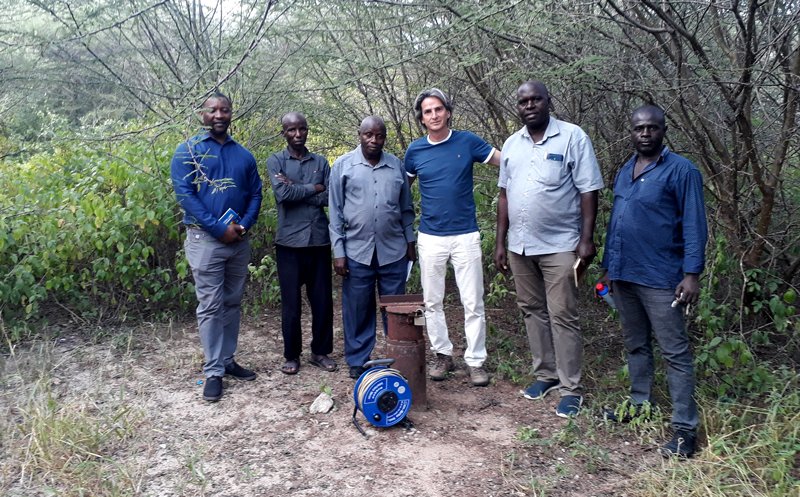NURTURING A RESILIENT EARTH
Balancing global water supplies
By: Liz Do & Alison Rutka
24 Oct, 2023
The effects of climate change can be felt globally at an alarming rate. CIFAR is at the forefront of addressing it. This special series, Nurturing a Resilient Earth, takes a closer look at how CIFAR’s community — across borders, roles and disciplines — is making a meaningful impact to bring about powerful change.
In this installment, learn how CIFAR researcher Richard Taylor is diving into the subject of heavy rainfalls and their effects on global water supplies.
Want to learn more about their research?
Watch: CIFAR Talks: Nurturing a Resilient Earth featuring researchers from the series.

Photo by England Studios
The growing issue of climate change has exposed widely documented areas of inequity. The International Monetary Fund notes that the world's poorest countries — those that rely most heavily on sectors like agriculture, fishing and forestry — are experiencing heightened levels of hardship with the acceleration of climate change.
For low-income countries across the tropics, improving access to safe water and reliable food supplies are becoming even greater challenges. CIFAR researchers are grappling with how to combat the effects of climate change generating severe global inequalities.
Richard Taylor, fellow in CIFAR’s Earth 4D: Subsurface Science & Exploration program, is examining how to boost the resilience of global water supplies impacted by climate change. As the Earth’s temperatures rise, interesting things happen to water. Melting glaciers and ice bring more water and air vapour into the world’s active water circulation. NASA reports that Antarctica alone is melting at a rate of 150 billion tonnes per year, contributing greatly to global sea level rise. But it’s another water phenomenon resulting from climate change that Taylor is paying particular attention to: the transition to fewer but heavier rainfall events.
As with other climate impacts, the shift towards more frequent floods and droughts expose existing climate inequities. Taylor notes that the amplification of these events is three times greater in the equatorial tropics than it is at mid- to high latitudes, in places which already have an increasing water demand.
But there is hope still. These severe rainfall events, says Taylor, can be both a blessing and a curse.
“Fewer but heavier rainfalls mean more variable and less reliable surface water resources. It means higher irrigation demand to maintain agricultural production since fewer rainfalls disadvantage soil moisture,” says Taylor. “But I've shown that this intensification of rainfall actually also favors the replenishment of groundwater in many environments in the tropics.”
And groundwater, as Taylor knows, has powerful potential to combat climate woes like food insecurity and access to clean water. Working in areas of the globe with an increased water demand, Taylor and his colleagues are examining groundwater-based solutions that are well contextualized within the communities they are meant to serve.
One such example is using well-distributed groundwater to sustain irrigation by smallholder farmers in tropical regions. In a 2022 paper in Science, Taylor and his colleagues demonstrated where and how groundwater withdrawals for the cultivation of rice during the dry season in Asian mega deltas can be sustained, a solution referred to as the “Bengal Water Machine.”
How does CIFAR help you do impactful work to address climate change?
“CIFAR, through the Earth 4D program, connects me to a global group of amazing scientists with allied research interests. This process not only broadens my horizons around specific techniques and methodologies that I can employ in my research but also to the wider impact of the science that I conduct.”


In the drylands of central Tanzania, Richard Taylor and his colleagues are establishing telemetered real-time groundwater-level monitoring in the Makutapora Wellfield (the sole source of water to Tanzania's national capital, Dodoma). Left: Hosea Sanga and Richard Taylor; Right: Hosea Sanga, Kefa Malingwa, Emmanuel Nahozya, Richard Taylor, Japhet Kashaigili and Joseph Marimoto. Photos courtesy of the researcher.
This ability to harness the outputs driven by climate change to address climate inequalities provide opportunities to be hopeful about the globe’s future.
“We can't go back to the climate and hydrology of 50 years ago,” says Taylor. “We have the climate of today, and what are you going to do about it? And how are you going to adapt?”
His research adds a unique perspective to the climate crisis: leveraging the outputs of climate change so that it could play a pivotal role in finding a solution. His work also adds to the immense tapestry of research at CIFAR that is tackling the climate crisis in different ways.
“CIFAR, through the Earth 4D program, connects me to a global group of amazing scientists with allied research interests,” says Taylor. “This process not only broadens my horizons around specific techniques and methodologies that I can employ in my research but also to the wider impact of the science that I conduct.”
As Taylor continues to conduct field work around the world, he hopes to continue sharing his knowledge with policy makers on groundwater management and its potential to mitigate the impacts of climate change.